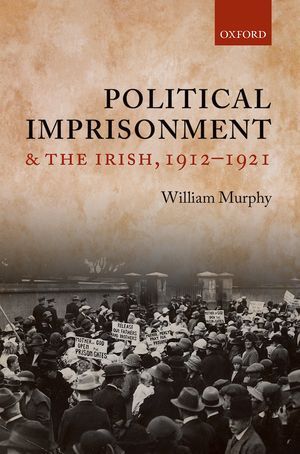
For a revolutionary generation of Irishmen and Irishwomen - including suffragettes, labour activists, and nationalists - imprisonment became a common experience. In the years 1912-1921, thousands were arrested and held in civil prisons or in internment camps in Ireland and Britain. The state's intent was to repress dissent, but instead, the prisons and camps became a focus of radical challenge to the legitimacy and durability of the status quo. Some of these prisons and prisoners are famous: Terence MacSwiney and Thomas Ashe occupy a central position in the prison martyrology of Irish republican culture, and Kilmainham Gaol has become one of the most popular tourist sites in Dublin. In spite of this, a comprehensive history of political imprisonment focused on these years does not exist.
In Political Imprisonment and the Irish, 1912-1921, William Murphy attempts to provide such a history. He seeks to detail what it was like to be a political prisoner; how it smelled, tasted, and felt. More than that, the volume demonstrates that understanding political imprisonment of this period is one of the keys to understanding the Irish revolution. Murphy argues that the politics of imprisonment and the prison conflicts analysed here reflected and affected the rhythms of the revolution, and this volume not only reconstructs and assesses the various experiences and actions of the prisoners, but those of their families, communities, and political movements, as well as the attitudes and reactions of the state and those charged with managing the prisoners.